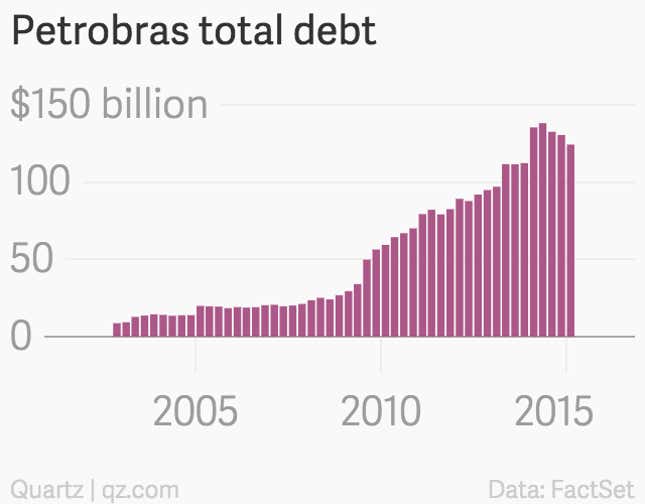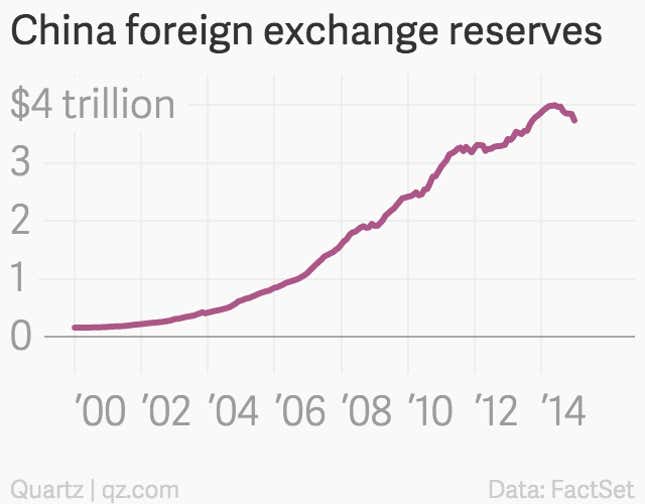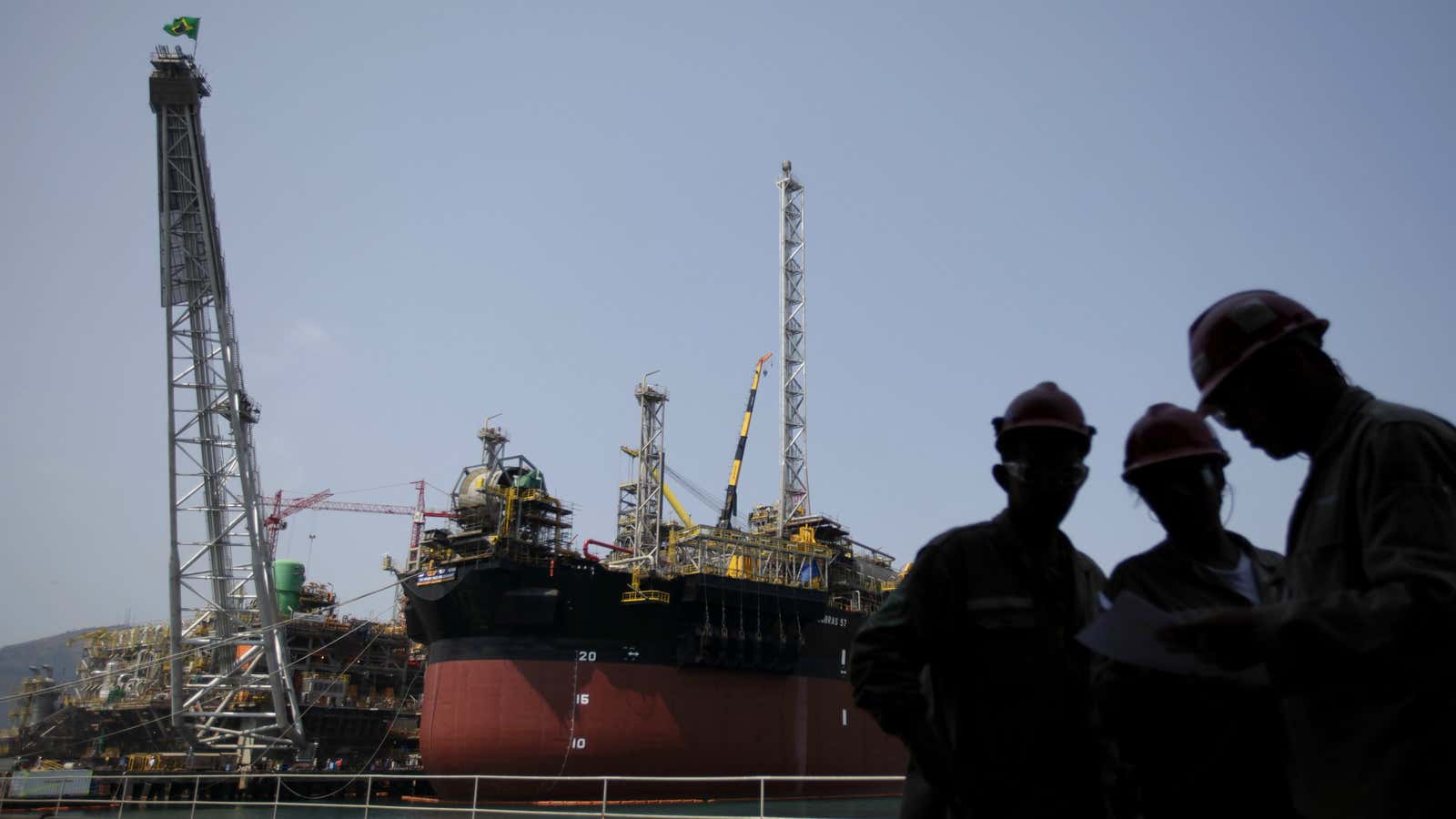
By some measures, Brazil’s state oil behemoth Petrobras is the world’s most-indebted company.
And managing that debt load—roughly $130 billion at the end of last year—has become increasingly tough. The weakness of both oil prices and Brazil’s currency makes foreign bond holders tougher to pay off. It also raises the price of the oil the company imports, refines, and sells to the domestic market. Oh, and then there’s the slow-moving corruption scandal that that forced the company to announce a $17 billion related write-down last month.
The result is that the company’s financial wiggle room is narrowing fast. The fact that Moody’s yanked the company’s investment grade reflects the market’s growing skepticism about the company. That skepticism will only make it tougher (read: more expensive) for Petrobras to pull off the financial feats of debt rollovers it will need to keep current on its debts.
But lo, who is that rushing in to render aid? Why it’s China. Chinese state banks have recently unveiled roughly $10 billion in financing commitments to Petrobras, as the country continues its quest to turn its stock piles of financial capital into political capital. This is part of a broader pattern of Chinese largesse that includes not only Brazil but also the China-led Asian Infrastructure Investment Bank, as well as other efforts such as the Silk Road project.
In sum, China is using its investment muscle—it has nearly $4 trillion in reserves—as a geopolitical tool, argues Monica de Bolle of the Peterson Institute of International Economics.

“Notably, Brazil, China, and Peru are looking to build a railway linking Brazil’s Atlantic coast to Peru’s Pacific outlet, thus circumventing the need to utilize the Panama Canal,” she writes, adding that “the United States, in the meantime, is standing on the sidelines.”
Investors have always been willing to lend to Petrobras,thanks to the government’s backing of the company. But they probably didn’t expect that government backing to come from the People’s Republic.




